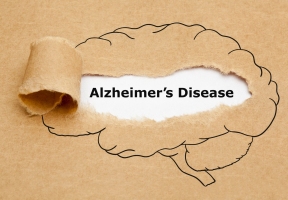

With National Alzheimer’s Awareness Month, the Alzheimer’s Foundation of America (AFA) is providing information to dispel common falsehoods about Alzheimer’s disease to help individuals know the warning signs, understand the importance of early detection, and learn how to be proactive about reducing their risk. “Dispelling the misconceptions about Alzheimer’s disease is critically important, because they may cause people to ignore symptoms and delay taking action which impacts their health and quality of life,” said Charles J. Fuschillo, Jr., AFA’s President and CEO. “National Alzheimer’s Awareness Month is the perfect time to reinforce factual information that can help someone spot the warning signs, get screened, and be proactive about their brain health.” Here are a few common falsehoods about Alzheimer’s disease:
Falsehood #1: Alzheimer’s is just part of getting older. Alzheimer’s is not a normal part of aging– it is a progressive, degenerative brain disorder, that impacts memory, thinking and language skills, and the ability to carry out simple tasks. It differs from regular age-related memory loss, such as occasional forgetfulness. Persistent, progressively worsening memory issues that interfere with every day functions, such as routinely becoming disoriented in familiar places or forgetting familiar names and faces, are not “just part of old age”—they’re warning signs of a health problem.
Falsehood #2: Alzheimer’s disease only affects senior citizens. While the majority of people who develop Alzheimer’s disease are over the age of 65, young-onset Alzheimer’s disease can affect people as young their 30s or 40s. Memory problems at any age should be checked out.
Falsehood #3: You cannot reduce your risk of developing Alzheimer’s. While there is no guaranteed way to prevent Alzheimer’s, lifestyle choices can help you reduce your risk for developing Alzheimer’s disease. Good diet, exercise, social interaction, learning new skills, proper sleep, limiting alcohol, and quitting smoking are all things you can, and should, do to promote good brain health.
AFA offers free, confidential memory screenings virtually—visit www.alzfdn.org to learn more.












